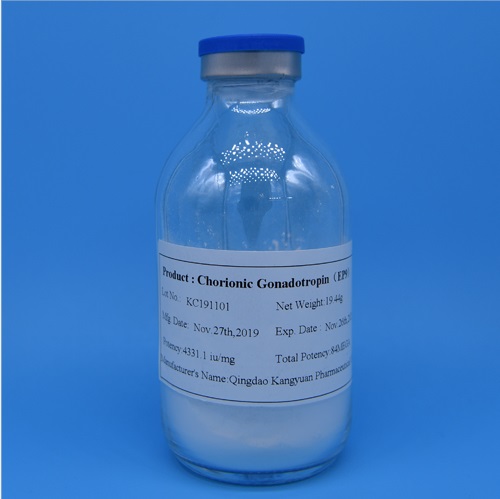Human Menopausal Gonadotropin (hMG) is a hormonal medication that is used
to stimulate the ovaries in women who have ovulation problems or infertility.
hMG contains two hormones, follicle-stimulating hormone (FSH) and luteinizing
hormone (LH), that are naturally produced by the pituitary gland. These hormones
help the ovaries to produce and release mature eggs.
hMG is usually given by injection under the skin or into a muscle. The
dosage and duration of treatment depend on the individual patient's response and
the type of infertility being treated. hMG is often used in combination with
other fertility drugs, such as human chorionic gonadotropin (hCG), clomiphene
citrate, or gonadotropin-releasing hormone (GnRH) analogs.

hMG can have some side effects, such as pain, swelling, or bruising at the
injection site, headache, nausea, abdominal discomfort, mood changes, or breast
tenderness. Some women may also experience ovarian hyperstimulation syndrome
(OHSS), a condition where the ovaries become enlarged and produce too many eggs.
OHSS can cause symptoms such as abdominal pain, bloating, weight gain, shortness
of breath, or decreased urine output. OHSS can be serious and may require
hospitalization.
hMG is not suitable for all women who have infertility problems. Women who
have primary ovarian failure, uncontrolled thyroid or adrenal disorders,
abnormal uterine bleeding, ovarian cysts or tumors, or liver or kidney disease
should not use hMG. hMG should also not be used by women who are pregnant or
breastfeeding.
hMG is a powerful medication that can help some women achieve pregnancy.
However, it should be used with caution and under the supervision of a doctor
who specializes in fertility treatments. hMG can increase the chances of
multiple births, such as twins or triplets, which can pose risks for both the
mother and the babies. Therefore, women who use hMG should have regular
monitoring of their ovarian function and pregnancy status.